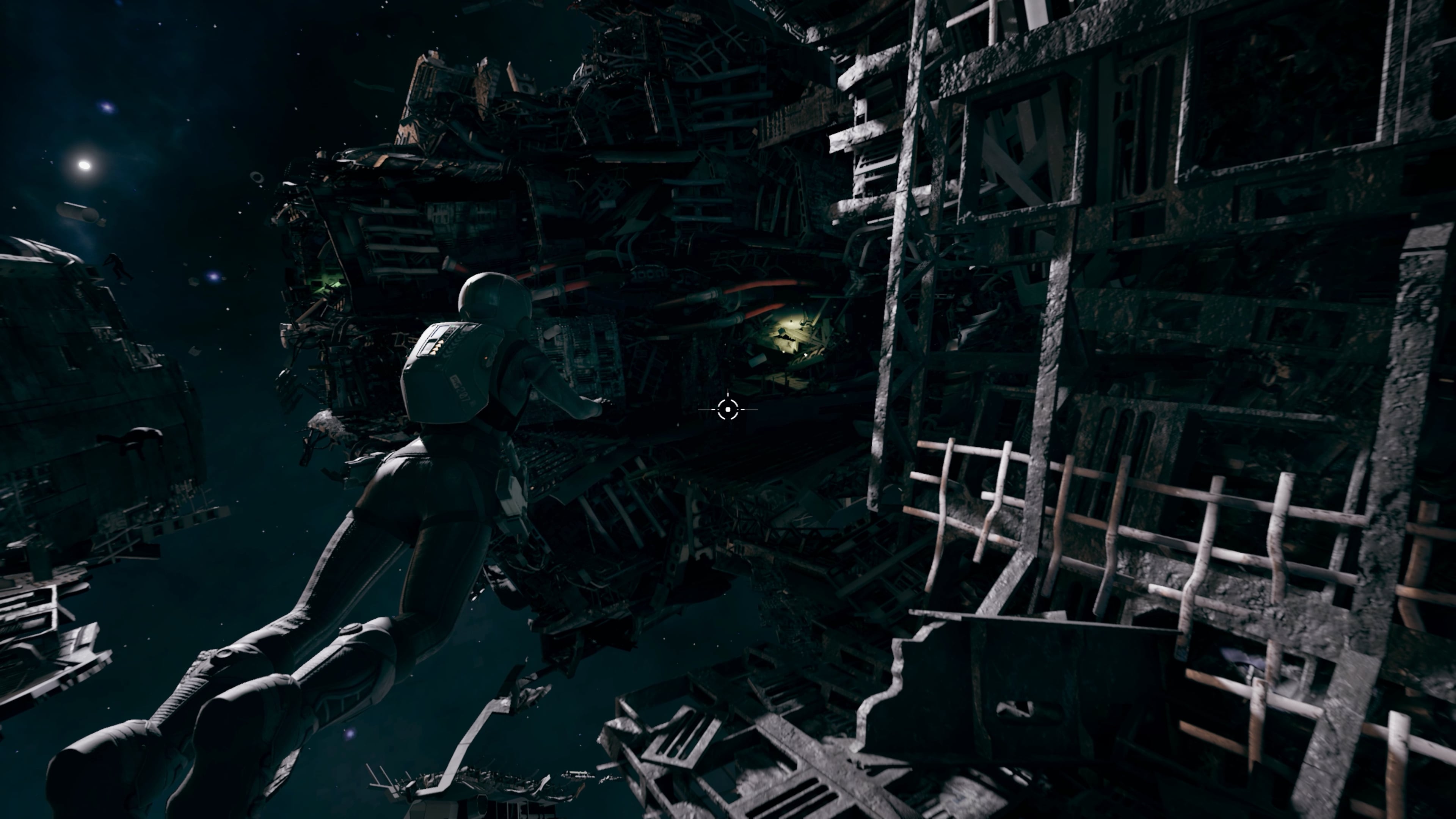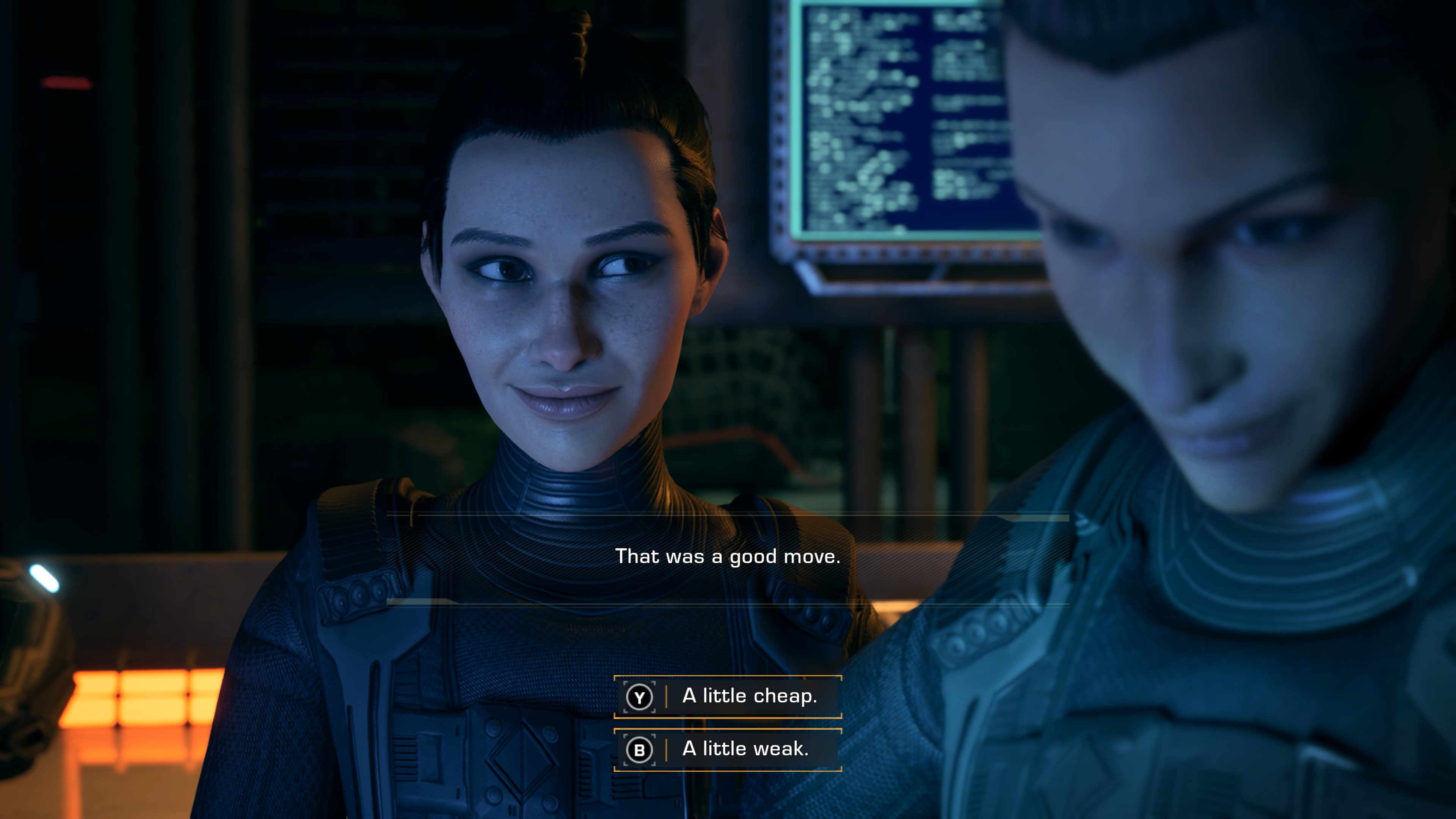
The Expanse: A Telltale Series is the first fully new release from the revived Telltale Games. Co-developed by Deck Nine of Life is Strange: True Colors fame, it in many ways achieves something I'd thought impossible in 2023. Not only does it really feel like an expansion of, well, The Expanse, but its episodic nature actually serves to enhance the experience rather than detract from it.
I've not yet finished all of the episodes, with only the first three available to review, but what I have played is exceedingly promising. At this point, my only question is whether the core mystery is satisfying and if the developers manage to stick the landing, which is impossible to answer without fully understanding the breadth and scope of the entire set of episodes.
A Belter's Life

Release date: July 27, 2023 (first episode, another every two weeks after for a total of five)
Platform(s): PC, PS5, PS4, Xbox One, Xbox Series X
Developer: Deck Nine
Publisher: Telltale Games
The Expanse, if you're not familiar, is a popular series of books by author James S.A. Corey that was then adapted into a popular TV series for Syfy that ultimately ended up on Amazon's Prime Video. The Expanse: A Telltale Series serves as a prequel to the show, and therefore isn't directly an adaptation of the books. This is most obvious with the characters that reprise their roles and share their likenesses between the two, like Cara Gee as Camina Drummer – the game's protagonist.
While that all might seem a bit daunting at first, the game does a good job of easing you into the thick of things. While it's certainly helpful to already understand the relationship between, say, the UNN, MCRN, and OPA, Telltale and Deck Nine offer plenty of opportunities to introduce concepts like Belter language and more. It never quite veers into overwhelming.
Taken on its own terms, The Expanse: A Telltale Series will likely feel awfully familiar to anyone that's played previous games from Telltale or even Deck Nine's Life is Strange: True Colors. You navigate around, talk to other characters, and generally move the plot forward by looking for things, finding said things, and bringing the aforementioned things elsewhere.

But the window dressing of The Expanse franchise really goes a long way here. The baseline setting of a single ship out in space means that the small levels never actually feel small. It also provides a compelling background for various characters to bounce off, which is only enhanced by the player being familiar. (For context, I've seen and loved the show, but I've not read the books.)
The biggest difference in The Expanse: A Telltale Series as opposed to previous games in its pedigree is a relatively obvious one: due to being set in space, there is a whole mess of zero-g exploration. As Drummer, you can use thrusters to lift off the ground and float around to navigate and engage your mag boots to walk on walls, ceilings, and the like when there's no gravity stopping you.
To be frank, the experience is a bit awkward and alienating at first. Imagine a visual novel adding sections of a rudimentary flight simulator and you've got the general idea. It can be extremely clunky and often require zooming around cramped spaces, which would be rough even with the best possible controls.
There is an argument to be made that the clunky controls are more in line with the actual feeling of figuring out which way is up. This sort of thinking certainly made my time getting around less frustrating, but it's nevertheless an early stumbling block. Maneuvering gets easier with time and practice, but it never does feel as slick as one might hope.
A developing story

While I won't spoil any of the narrative twists and turns here as the whole premise of the game is to experience those interactively, it should come as no surprise that Drummer and the crew of the Artemis, a salvage vessel, quickly find themselves deeply entrenched in a plot of some kind out in the void. As Drummer, the player has to step into a position of authority and generally make the call on what to do, when, and how to go about it.
And again, this is the perfect alignment of this specific franchise and the mechanical structure largely pioneered by Telltale of old. As a high-ranking member of the ship, the rest of the crew look to Drummer for guidance narratively, which makes the game mechanics of being the one to make impactful and important decisions easy to implement.
For example, early on there is a moment where you have to make the call on whether someone is bodily injured in a permanent way or you and your crew lose out on something particularly valuable. Sure, you can play through it multiple times and see the different permutations of this choice play out and perhaps they are roughly the same, but it feels meaningful in the thick of it.

But it's hard to confidently say anything about The Expanse: A Telltale Series when it's releasing only the first episode at launch. There's always the possibility that it stumbles near the end or that the various relationships between the characters don't progress in a satisfying way. But from what I've played, it genuinely feels and is structured like an episode of the TV show for which it is meant to be a prequel.
In that very specific way, for me, it's already a success. Some of my favorite shows have great episodes and bad episodes, so I'm not sure how much it might matter even if the last two of The Expanse: A Telltale Series screw it all up. It won't take away the way it made me feel to hear the show's theme song again or Cara Gee's particular way of pronouncing lang Belta, sasa ke?
The Expanse: A Telltale Series was reviewed on PC via Steam, with code provided by the publisher. We will update this review with a score and final impressions once all episodes are available.







